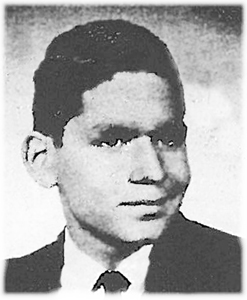

Pediatric cardiologist, president of the Mount Sinai Health Network
(1947– )
I spent a good part of my growing up listening to family immigrant stories—who brought whom to the United States, how they got there, how they ended up in the Bronx, which in those days they thought was nirvana. The immigrant stories always had adversity. There was suffering. There were bad times in Russia, and there were the Depression and the recessions when they finally got to the United States. But most of these stories were colored with humor. I think that was a very important cultural influence on me.
In our extended family, there were a lot of Sarahs, there were a lot of Roses, there were a lot of Helens, and there were a lot of Sylvias. My mother had two first cousins. One Sarah was Fat Sarah and the other Sarah was Dumb Sarah. I just thought those were their names: Fat Sarah and Dumb Sarah. Dumb Sarah was the most likable person in the world. She would do anything that you asked her to do, but reasoning was not part of it. She was always amenable. The other Sarah, on the other hand, she was the one you had to be careful about how much cheesecake you laid out when she came over for coffee and cake.
In 1948 my grandfather’s first cousins, who managed to survive the Holocaust, were sponsored by him and came over. And to us, these people were forever known as “the Greeners,” because the slang Yiddish term for newcomers was “greenhorns.” I thought that was their name because they were never called anything else. The Greeners are coming for dinner tonight was what they said.
There was predictability to life that gave me, as a child, a tremendous sense of security. As the family grew, my grandmother couldn’t prepare the Friday night dinner for everyone, so wherever you lived—our whole family lived in the Bronx, and for years we all lived in the same building and neighborhood—you went to my grandmother’s for dessert and coffee. That was predictable. Our Friday night ritual.
The men played pinochle in the dinette, and the women were generally in the living room chatting. The kids were in the back bedroom doing whatever we did—mostly watching TV. My grandmother had a TV early on because she liked to watch The Loretta Young Show.
My grandmother would make an announcement that it was time for coffee and dessert, which meant that she moved the cut-glass fruit bowl from the kitchen into the dinette and put it down on the table, no matter at what stage the card game was. My grandfather was always pissed off because it was invariably in the middle of a game. And she would say to him, “Sha. Be quiet. Enough.”
My grandmother also had this habit, which, by the way, to the day my mother died, she also had. She used to keep playing cards in the pocket of her housecoat or apron. Then she picked up crumbs or dust from the floor with the two playing cards, using them like a dustpan and a small dust broom. If my grandmother was sweeping the floor of the kitchen on Friday night, and if the men were playing cards and she didn’t have cards handy, she’d go right over to the table and take two cards off the table—without asking, of course. My grandfather would say, “What are you doing? The woman’s an idiot,” and she would look at him with complete disdain and say, “What are you complaining about? You got a tableful!” Then—“The man’s a meshuggener.” A crazy one. Those last words were not said to him but to the broad air.
My grandfather had a view of America that was also part of the Friday night gatherings. We were to hear the world according to Grandpa. He was very clearly seen as the patriarch. That stability in the family was very important to me. There was a real sense that this was the family hearth. Even though it wasn’t a big sprawling home or the farmhouse, it was the Bronx version of that.
When the Russians launched Sputnik my grandfather went crazy. “What’s the matter with the Americans? Couldn’t they see that the Russians were going to concentrate on this?” His notion was that Americans could be self-congratulatory and lazy. “This country has to wake up.” The reason he had such a profound influence on my life is that he would always say, “The future is science.” We have to beat the Russians. We have to be the technological leaders. We can’t sit on our laurels of having won World War Two.
Quite frankly, if I were to be true to my real passion, I would’ve been a history teacher. But for my generation, and I’ve heard this from a lot of my friends, there was this pressure to go into a scientific career. That was the future of America, and we couldn’t risk falling behind. It was patriotism linked with the sense that European Jews had made a huge impact on science in Europe and it was now our responsibility here. My grandfather was the one who taught me how many German and Russian Jewish scientists were involved with the Manhattan Project and theoretical physics. It all made a big impression on me.
I went to a Bronx school, yet I got the best secondary education I could possibly have gotten in the whole country. When I graduated from Bronx High School of Science, there were twenty-one of us in my graduating class who got into MIT. We were the largest single contingent from any high school in the United States going to one of the foremost universities in the country.